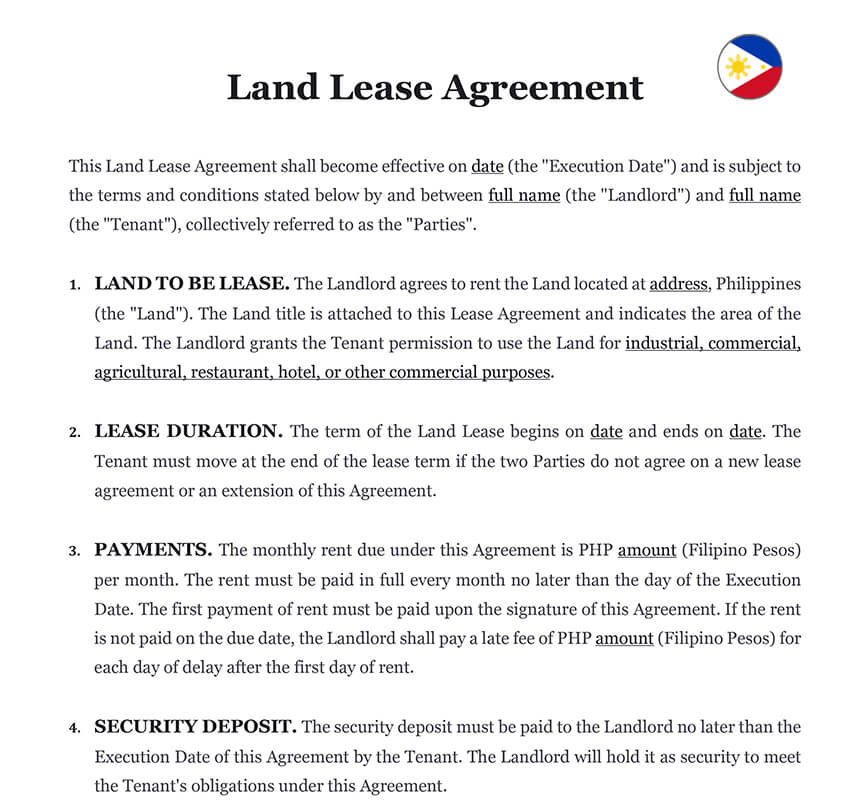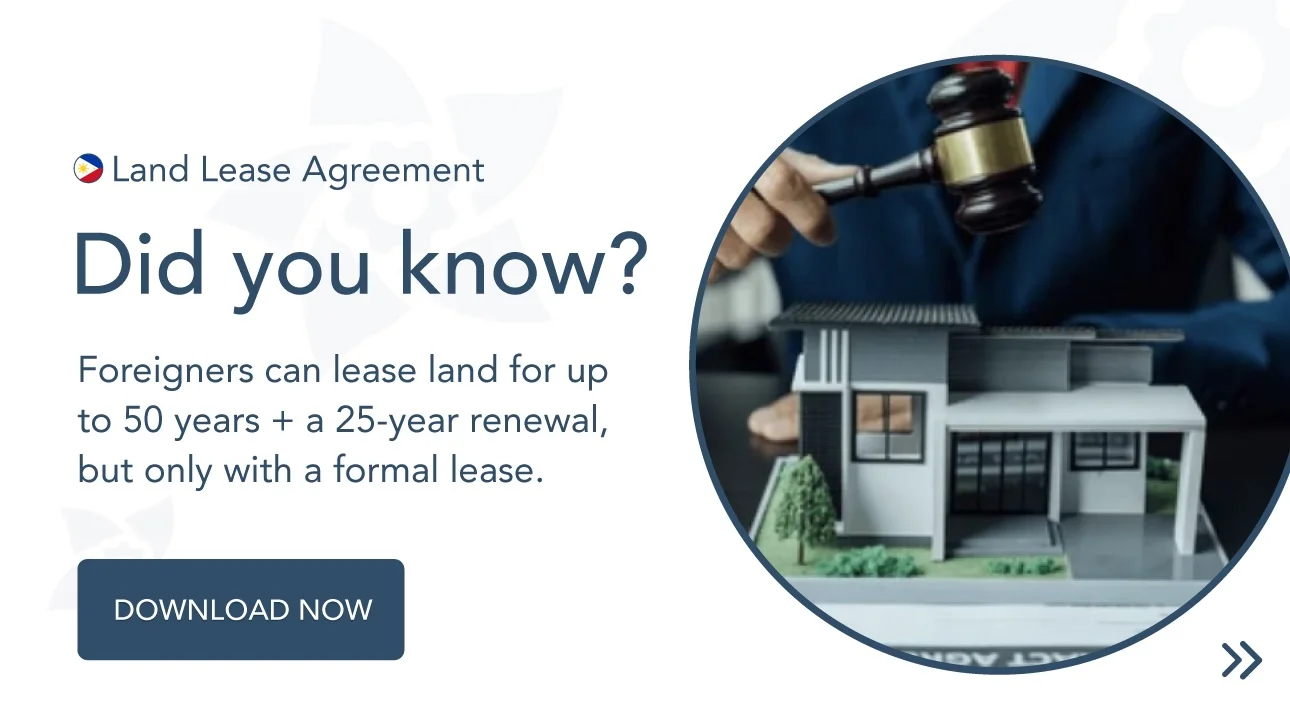The terms of a lease agreement might vary substantially based on the kind of lease and the unique needs of the tenant and landlord. However, fundamental factors include:
The words “lease agreement” and “rental agreement” are sometimes used interchangeably. However, some individuals use them to signify certain things, therefore it’s critical that you explain the terms of the leasing agreement with the other parties involved.
Lease agreements are often long-term property leases lasting more than 30 days. Lease agreements also often have set end dates. Rental agreements, on the other hand, relate to short-term property contracts of less than 30 days. These are frequently renewed automatically.
People who are renting a home and need to terminate their lease before the expiry date may be concerned about their possibilities.
In the Philippines, you can lawfully break your rental lease. Take note that we stated “potential.” There is no assurance that a landlord would let you breach the agreement, and they may have the law on their side. That being stated, here are several legal methods to break your rental agreement in the Philippines.
Leases of less than three years do not need to be registered, but registration with the Land Department is required for leases of three years or more. It is strongly recommended that long-term leases be registered so that the lessee can enforce his or her right to use the land.
Finding someone else to rent your unit is the simplest and most direct approach to persuade your landlord to agree to legally break your rental agreement in the Philippines. At the end of the day, every landlord wants renters. They don’t mind if you go as long as someone is already lined up to take your place.
Finding a new renter is preferable to subletting your house, which is unlawful unless authorized by your landlord.
Another legal option to end your rental lease in the Philippines is to include an opt out provision in your contract. You should check your lease agreement to determine if it has these clauses. In some circumstances, opt out provisions can force you to pay a fee to terminate the contract.
If you don’t have an opt out clause and can’t locate someone to take over your lease, your only option is to try to bargain with your landlord. Realistically, your landlord would prefer that you stay since finding a new renter would be tough. They also have the authority to enforce the lease you signed.
Assuming your landlord understands the issue and wishes to reach an agreement, sending a 60- or 90-day notice instead of 30 days might be one solution. While you may be locked in your existing lease for a month or two longer than you’d want, the extra time allows the landlord to locate a new renter.
Another option is to provide your security deposit to the landlord in return for terminating the lease. Some landlords are ready to accept such a compromise if the tenant’s rental agreement has six months or fewer to run.
1. What can I do with my security deposit?
The majority of expenditures associated with normal wear and tear, such as paint fading, carpet damage, or dirty blinds, are not deductible. You can remedy damaged or sanitary concerns that are not considered typical usage, such as structural damage or excessive dirt.
2. Can I increase the rent before the lease expires?
Changing the rent normally requires waiting until the lease ends. If you intend to raise the rent, you must provide the current tenant 30 or 60 days’ notice so that they may decide whether to sign a new lease for the higher amount or quit. Local laws may apply to the necessary notice period.
3. What if I can’t pay the full security deposit?
If you are unable to pay the full security deposit, you should contact the Landlord to discuss a payment plan. You must stick to your payment plan or face eviction.
4. What should I do if my lease is about to expire?
Notify your landlord of your decision to remain. If you do not want to renew your lease, you must provide your landlord at least 21 days’ notice. Look through your lease to see whether you agreed to a lengthier notice period. You may be able to start a month-to-month lease if you don’t know when you’ll be departing.
5. Is it mandatory for landlords to allow dogs in their properties?
Landlords are not required to accept dogs on their premises. If you intend to bring a pet, make sure you obtain permission from the owner beforehand.
1. What are landlords required by law to do?
As a landlord, you are responsible for making the necessary repairs to make the property habitable. You must also meet your share of the rental agreement, such as paying for electricity or lawn maintenance.
2. Can I restrict the number of tenants?
You can provided you obey the local housing regulations. The general guideline is two people plus one per room. According to this law, the maximum number of Tenants for a two-bedroom unit is five.
3. How much security deposit may I ask for?
Tenants must submit a security deposit of at least two months’ rent.
4. Can I rent out my condominium in India for a short period of time?
In India, renting out your condominium flat for business purposes is not legal. Owners in India typically use the following sites to rent out their properties: Airbnb, Booking, DD Property, or Rent My Stay are all options.
5. What can I do with my security deposit?
The majority of expenditures associated with normal wear and tear, such as paint fading, carpet damage, or dirty blinds, are not deductible. You can remedy damaged or sanitary concerns that are not considered typical usage, such as structural damage or excessive dirt.
6. Can I increase the rent before the lease expires?
Changing the rent normally requires waiting until the lease ends. If you intend to raise the rent, you must provide the current tenant 30 or 60 days’ notice so that they may decide whether to sign a new lease for the higher amount or quit. Local laws may apply to the necessary notice period.
7. What happens if I choose not to renew my lease with a Tenant?
If you do not desire to renew a lease with a Tenant, you must tell the Tenant in advance that the lease is about to expire and you do not wish to renew it. You must give 90 days’ notice in Philippines.
8. Are verbal lease agreements legally enforceable?
Yes, in many cases, as long as you can show that an agreement exists between the Landlord and the Tenant. The terms of the agreement, on the other hand, may be difficult to demonstrate in court. As a result, it is necessary to set the terms and have both parties sign them (particularly if the agreement is long-term).
9. Should I permit subletting?
Subletting can assist landlords in specific cases by lowering vacancy times. If a Tenant asks a sublease, it is possible that they are having financial troubles or just need to relocate. In any scenario, if you find the correct subletter and document the transaction with a sublease agreement, subletting may be a terrific way to keep the flat occupied.





